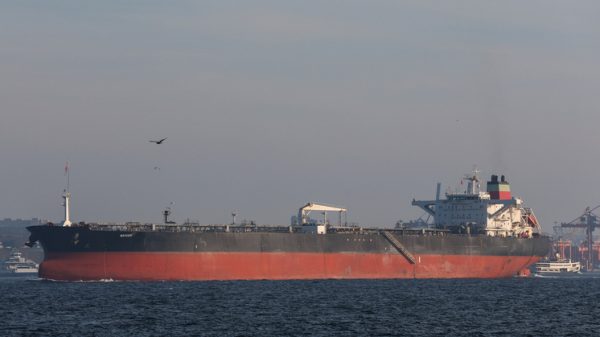 Tensions between Israel and Hamas escalate Photo: Anadolu Agency
Tensions between Israel and Hamas escalate Photo: Anadolu Agency
Investors brace for a jump in oil prices after Israel declares war on Hamas raises fears of a «growing» crisis in the Middle East.
Analysts warn the price of Brent crude could jump 5% when trading begins on Monday, amid concerns about future supplies.
p>< p>Although Israel is not itself an oil exporter, the conflict will have repercussions throughout the region.
It has echoes of the 1973 Yom Kippur War, which led to the Arab oil embargo. OPEC members punished the United States for supporting Israel in the conflict by blocking exports, which led to a sharp rise in fuel prices and triggered an inflation crisis.
Experts do not expect a similar reaction this time: OPEC leader Saudi Arabia is now much closer to Washington.
When asked how OPEC would respond to the situation in Israel on Sunday, United Arab Emirates Energy Minister Suhail al-Mazrouei replied: “We don’t do politics; we manage supply and demand, and we don't take into account what each country has done.»
However, there are fears that the war could disrupt oil exports from Iran. The Gulf state has backed the Hamas terrorist group and openly praised its attack on Israel.
Ole Hansen, head of commodity strategy at Saxo Bank, said: “What the market thinks will be potentially the biggest risk is clear , it will come from places like Iran.”
 President Joe Biden has pledged “strong” support for Israel. Photo: Kevin Dietsch/Getty Images North America
President Joe Biden has pledged “strong” support for Israel. Photo: Kevin Dietsch/Getty Images North America
Although Iran has faced sanctions on its oil industry since 2018, sanctions enforcement has eased under President Joe Biden amid improving relations between Washington and Tehran. .
Mr Hansen said the conflict could escalate tensions between the two countries. President Joe Biden has pledged «strong» support for Israel.
Mr Hansen said: «Supply is not in danger at present, but the market is worried, and market anxiety can often influence markets more than actual fundamentals.»
He predicted that oil prices could jump by about $5. barrel at the beginning of trading. Brent crude was trading at just under $85 on Friday.
Bjarne Schildrop, chief commodities analyst at SEB bank, said: “There will always be concerns that this will lead to growing repercussions in the Middle East.”
Any restriction on Iranian exports will affect prices given that supplies are already limited. Russia and Saudi Arabia cut oil exports this year in an attempt to support prices, and the cuts have now been extended until the end of this year.
Exports from Iran have helped plug the shortfall. This year the country increased production by 410 thousand barrels per day.
Mr Hansen said: «One of the biggest volumes of exports we've seen this year has come from Iran along with US shale, and if the finger is pointed at Iran we could potentially see tightened sanctions against Iran and that's potentially could tighten the market.» «.
Increasing prices to $90 per barrel will only return oil to last week's level. The price of Brent crude has fallen 12% since peaking at more than $96 in late September amid signs of slowing economic growth around the world.
But a sustained rise in oil prices threatens to prolong the fight against inflation in the West.
Capital Economics estimates that if oil prices reach $95 a barrel by the end of the year, it will add 0.4 percentage points to global inflation next year. A rise in oil prices typically takes four weeks to translate into higher gasoline prices.
Mr. Schildrop said oil prices could jump to $87 this week.
He said: “We had a very, very big sell-off at the end of September, so the market is ready for a bullish reaction. It could only get stronger because of the big sell-off we have behind us.
“This [conflict] is still a long way from supply disruptions unless this war suddenly escalates into complete chaos engulfing the Middle East . . This would be a big surprise, and this is not our main scenario at all.
“But who knows. It's always, always disappointing when things like this start happening in the Middle East.”
Stock markets in the Middle East fell on Sunday. Israel's TA-65 index fell 6.4%, its biggest drop in more than three years. Saudi Arabia's Tadawul All Share index fell 1.6%.


























































Свежие комментарии